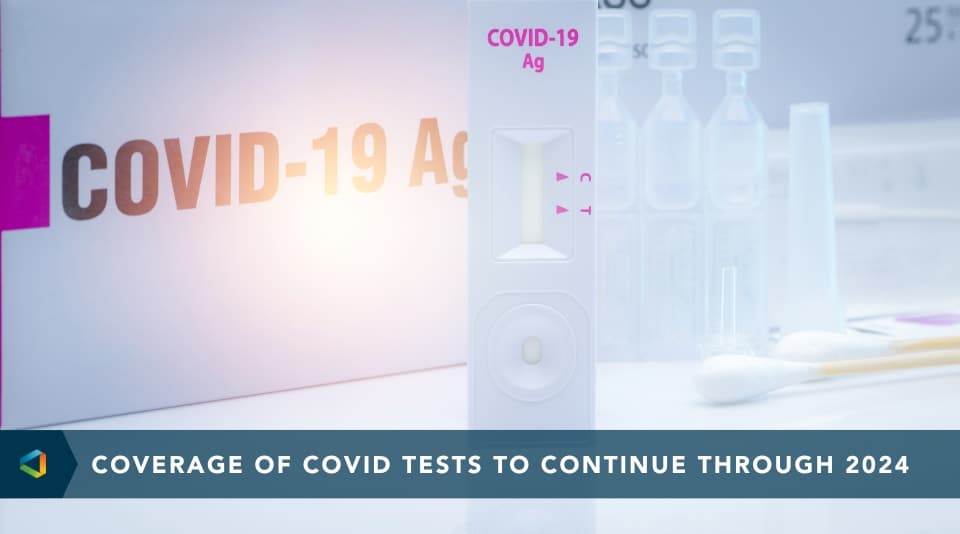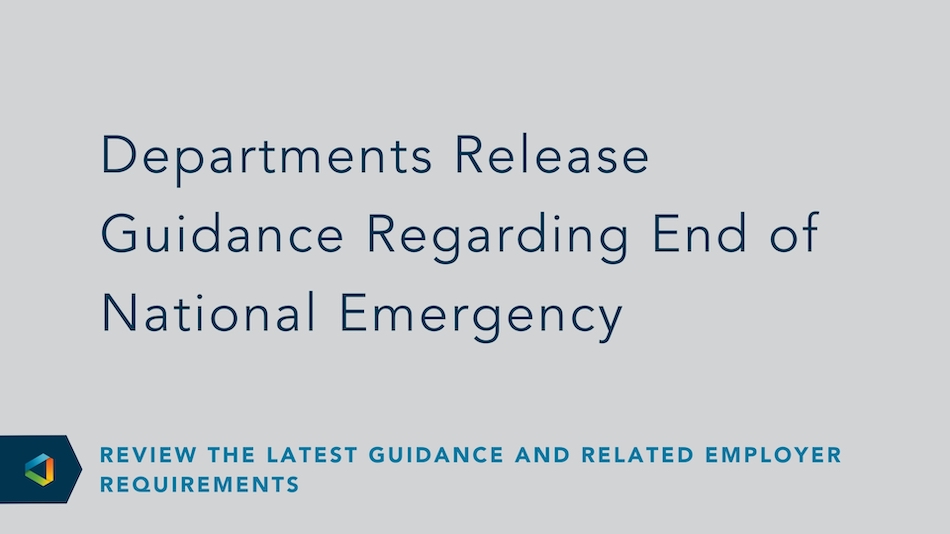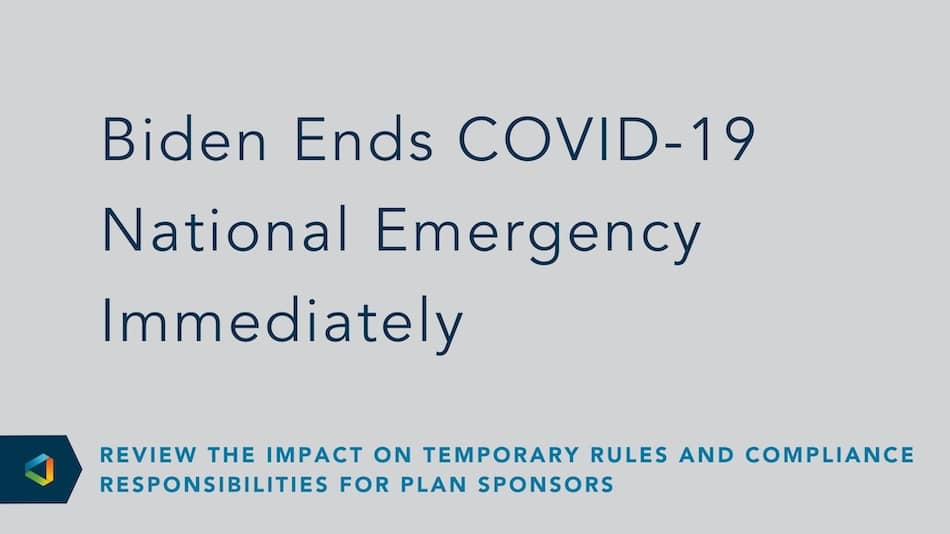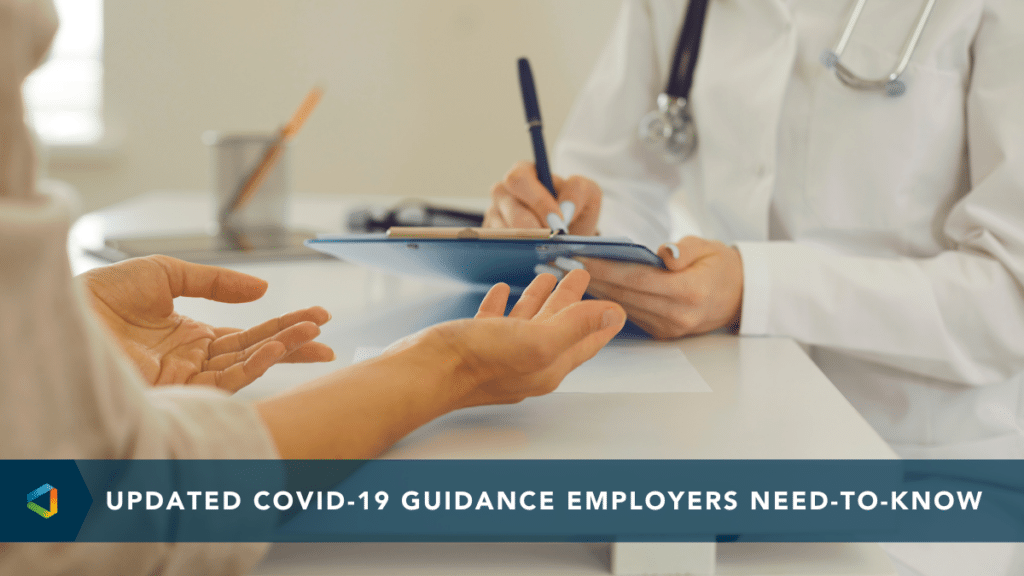Compliance Confidence
COVID-19-Related Relief and Guidance Released for Employee Benefit Plans
COVID-19-Related Relief and Guidance Released for Employee Benefit Plans
On April 28, 2020, the Department of Labor (DOL) and Internal Revenue Service (IRS) jointly released a joint rule, formal notice, and FAQs, extending certain pre-established deadlines for group health plans, disability, or other welfare benefits, and retirement plans. The guidance and deadline relief were issued in recognition of the COVID-19 emergency impact on plan sponsors, plan participants and beneficiaries, or other service providers.
The Agencies believe that such relief is immediately needed to preserve and protect the benefits of participants and beneficiaries. The DOL acknowledges that “without the extensions, individuals might miss key deadlines during the COVID-19 outbreak that could result in a loss or lapse of group health coverage or the denial of a valid claim for benefits.”The guidance applies to group health plans subject to ERISA or the Internal Revenue Code, and provides additional time to comply with COBRA, HIPAA special enrollment periods, claims for benefits, appeals of denied claims, and external review of certain claims. The Department of Health and Human Services (HHS) has also announced it will extend similar relief to non-federal governmental health plans.
Time Frame Extensions
The joint rule provides that all group health plans, disability and other employee welfare benefit plans must disregard the “outbreak period” beginning March 1, 2020 and ending 60 days after the announced end of the COVID-19 emergency for numerous statutory plan deadlines. The rule also provides several examples illustrating the timeframe for the extensions.HIPAA Special Enrollment
Typically, group health plans must allow employees or dependents who lose eligibility for other health coverage in which they were previously enrolled, and when an eligible employee acquires a dependent through birth, marriage, adoption, or placement for adoption, within 30 days (or within 60 days for changes in eligibility for state premium assistance under the Children’s Health Insurance Program). These deadlines are extended during the COVID19 outbreak.
Example: Assuming the COVID-19 National Emergency ends on April 30, 2020, the “outbreak period” begins March 1, 2020 and ends on June 29, 2020 (i.e., the 60th day after the end of the National Emergency). Grace is eligible for, but previously declined to participate in her employer-sponsored health plan. On March 31, 2020, Grace gave birth and now wishes to enroll herself and her child into her employer-sponsored plan. Grace and her child qualify for special enrollment into her employer’s plan as early as the child’s date of birth and have until July 29, 2020 (30 days after June 29, 2020) to enroll, provided that she pays the premiums for any period of coverage.
COBRA
Many COBRA deadlines are extended during the COVID-19 outbreak period:
- The 30- or 60-day deadline for employers or individuals to notify the plan of a qualifying event;
- The 60-day deadline for individuals to notify the plan of a determination of disability;
- The 14-day deadline for plan administrators to furnish COBRA election notices;
- The 60-day election period for COBRA continuation coverage; and
- The 45-day deadline in which to make a first premium payment and a 30-day deadline for subsequent premiums payments.
Example: Assuming the COVID-19 National Emergency ends on April 30, 2020, the “outbreak period” begins March 1, 2020 and ends on June 29, 2020 (i.e., the 60th day after the end of the National Emergency). Mark works for ABC Company and participates in ABC’s group health plan. Mark experiences a reduction in hours and no longer meets the group health plan’s eligibility requirements. Mark is provided a COBRA election notice on April 1, 2020. Mark has until August 28, 2020 (60 days after June 29, 2020) to elect COBRA.
Claims Procedures
The deadlines for individuals to file claims for benefit, for initial disposition of claims, and of providing claimants a reasonable opportunity to appeal adverse benefit determinations is extended during the COVID-19 outbreak.
- Group health plans and disability plans generally must provide at least 180 days in which to appeal following receipt of an adverse benefit determination; other welfare benefit plans must provide for 60 days.
- Note for health FSAs and HRAs. If the claim run-out period expires during the “outbreak period”, then the claims run-out period presumably is extended by the extension. However, if the “outbreak period” ends during the 2020 plan year, it is not clear whether the rule will require an extension of the claim run-out period occurring after the close of the 2020 plan year.
Example: Assuming the COVID-19 National Emergency ends on April 30, 2020, the “outbreak period” begins March 1, 2020 and ends on June 29, 2020 (i.e., the 60th day after the end of the National Emergency). Jerry is a participant in his employer’s group health plan. On March 1, 2020, Jerry received medical treatment for a condition covered under the plan. Under the plan, claims must be submitted within 365 days of the participant’s receipt of medical treatment to be timely. Jerry’s last day to submit a claim is 365 days after June 29, 2020, which is June 29, 2021.
External Review
The deadlines for filing a request for external review following an adverse benefit determination or a final internal adverse benefit determination and the deadline during which a claimant may file information to perfect a request for external review are extended.
Furnishing Notices
The notice provides an extension of deadlines for furnishing required notices or disclosures to plan participants, beneficiaries, and other persons. Examples of types of notices and disclosures would include Summary Plan Descriptions, Summaries of Material Modifications, and notices of adverse benefit determinations. Plans and responsible plan fiduciaries will not be in violation of ERISA for failing to timely furnish a notice, disclosure, or document that must be furnished between the “outbreak period” if the plan and responsible fiduciary act in good faith and furnish the notice, disclosure, or document as soon as administratively practicable under the circumstances. The notice provides that good faith acts include the use of electronic alternative means of communication if the plan fiduciary reasonably believes the plan participant or beneficiary has effective access to, including email, text messages, and continuous access to websites.Form 5500 and M-1
The notice confirms the limited extension relief for filing Form 5500 is provided in accordance with IRS guidance. Under the IRS guidance, Form 5500 filings that would otherwise be due on or after April 1 and before July 15, 2020, are now due July 15, 2020. In addition, the notice provides relief for Form M-1 filings for the same period as the Form 5500. This relief is automatic; no extension form, letter, or other request needs to be filed.The Agencies are continuing to monitor the effects of the COVID-19 outbreak and intend to provide additional relief if necessary. Employers will need to wait until the President declares an end to the COVID-19 National Emergency or the DOL and IRS issue a notice announcing an end of the “outbreak period,” to determine the date on which many of the deadlines mentioned above will expire. In the interim, employers will need to adjust administrative practices to take into account the extended deadlines.




